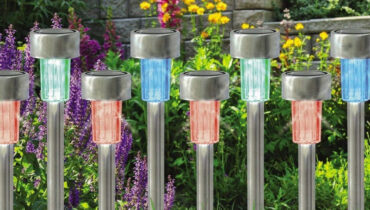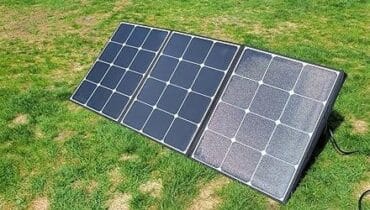Table of Contents
When considering the installation of solar panels on your home, one of the most important questions that often arises is, “How long do solar panels last?” Solar panels are a significant investment, and it’s essential to have a clear understanding of their expected lifespan. In this article, we’ll explore the factors that influence the longevity of solar panels, including the materials used and environmental conditions. Additionally, we’ll provide maintenance tips and discuss the overall sustainability of solar energy, addressing the commonly asked question: How long do solar panels last on average?
Solar panels have gained immense popularity as an environmentally friendly and cost-effective source of electricity for homeowners. If you’re contemplating solar installation and wondering what should be the tilt angle for solar panels, feel free to seek guidance for optimal efficiency. However, before investing in a solar panel system, one of the most crucial questions to address is, “How long do solar panels last on a house?” In this comprehensive guide, we will explore the lifespan of solar panels, the factors influencing their durability, maintenance strategies, and the benefits they offer.
Factors Affecting Solar Panel Lifespan
Solar panels are designed to be highly durable, and their lifespan can vary based on several factors:
- Solar Panel Quality: High-quality solar panels are built to last longer. They often come with extended warranties, indicating the manufacturer’s confidence in their durability.
- Manufacturing Materials: The materials used in solar panels can significantly impact their lifespan. Monocrystalline and polycrystalline panels tend to last longer than thin-film panels.
- Environmental Conditions: The location of your home and local weather conditions can affect the lifespan of solar panels. Extreme heat, cold, or humidity can impact their performance.
- Maintenance and Cleaning: Regular maintenance and cleaning of solar panels are essential. Dust, debris, and bird droppings can reduce their efficiency and potentially shorten their lifespan.
3 Top Solar Panels for House
- WEIZE 12 Volt 200 Watt Solar Panel.
- 110W Portable Panel, Foldable with Carry Case.
- Renogy 2PCS Solar Panels 100 Watt 12 Volt.
1. WEIZE 12 Volt 200 Watt Solar Panel, 2 Pack 100W High-Efficiency Monocrystalline PV Module for Home, Camping, Boat, Caravan, RV, and Other Off-Grid Applications
The “WEIZE 12 Volt 200 Watt Solar Panel, 2 Pack” is an understanding how does temperature affect solar panel efficiency is important when considering a solar panel product that offers a total power output of 200 watts, divided into two 100-watt high-efficiency monocrystalline PV (photovoltaic) modules. Here’s an overview of this product:
Specifications:
- Total Power Output: 200 Watts (100 Watts per panel)
- Voltage: 12 Volts
- Panel Type: Monocrystalline
- Pack: Comes as a set of two panels
- Applications: Suitable for a wide range of off-grid applications, including home use, camping, boat power, caravan, RV (recreational vehicle), and other scenarios where solar power is needed.
2. 110W Portable Panel, Foldable with Carry Case, High 24% Efficiency, IP65 Water & Dustproof Design Solar Charger Power Equipment Fishing Outdoor for Camping, RVs, or Backyard Use
This heading describes a portable solar panel product with the following features:
Specifications:
- A 110W solar panel
- Foldable design for easy transport with a carry case
- High solar efficiency of 24%
- IP65 rated, making it water and dustproof
- Suitable for various outdoor applications, including camping, RVs, and backyard use. It can be used for charging or providing power during these activities.
3. Renogy 2PCS Solar Panels 100 Watt 12 Volt, High-Efficiency Monocrystalline PV Module Power Charger for RV Marine Rooftop Farm Battery and Other Off-Grid Applications, 2-Pack 100W
This heading describes a product by Renogy, consisting of two solar panels, each with the following specifications:
Specifications:
- 100 Watts
- 12 Volts
- High-efficiency monocrystalline PV modules
- Designed for charging or providing power in various off-grid applications, including RVs, marine use, rooftop installations, farm applications, and other off-grid scenarios.
These headings provide an overview of each product, their features, and potential applications. If you have specific questions or need more information about any of these products, feel free to ask, including whether can you live off grid with solar panels.
Typical Solar Panel Lifespan
The average lifespan of solar panels typically falls within the range of 25 to 30 years. However, some high-quality panels have been known to perform well for 40 years or more. Manufacturers often provide warranties of 20 to 25 years, ensuring that your investment is protected for a significant portion of its lifespan. If you’re deliberating on your solar panel setup and considering which is better series or parallel solar panels, it’s advisable to weigh the benefits and efficiency of each configuration.
Proper maintenance is essential to ensure your solar panels reach their full lifespan and continue to perform efficiently. Here are some crucial maintenance tips to keep in mind:
- Regular Cleaning: Clean your solar panels periodically to remove dirt, dust, and debris that can accumulate over time. This buildup can reduce their efficiency. Use a soft brush and mild, soapy water for cleaning. Be gentle to avoid scratching the glass surface.
- Scheduled Inspections: Schedule regular inspections with a professional solar panel technician. They can check for potential issues, loose connections, or any damage to the panels. Professional inspections can catch problems early and prevent further damage.
- Monitor Energy Output: Keep an eye on your solar panel system’s energy output. If you notice a significant drop in electricity production, it may be an indication of a problem. This could be due to a malfunctioning component or shading issues.
- Inverter Maintenance: Inverters are a critical part of a solar panel system. Regularly check the inverter’s performance and replace it when needed. Faulty inverters can significantly impact the overall efficiency of the system. If you’re weighing the options and considering which is better inverter or solar panels, it’s essential to prioritize reliable components for optimal performance.
- Protection from Environmental Factors: If you live in an area with harsh weather conditions, consider adding protective coatings to your solar panels or investing in weather-resistant panels. This extra layer of protection can extend their lifespan.
Solar Panel Maintenance Tips
To ensure that your solar panels last as long as possible, consider these maintenance tips:
- Regular Cleaning: Clean your solar panels periodically to remove dust, dirt, and debris. Use a soft brush and soapy water for optimal results.
- Professional Inspections: Schedule regular inspections with a professional to check for any potential issues or damage to your solar panels.
- Inverter Maintenance: Inverters are an essential component of a solar panel system. Ensure they are functioning correctly and replace them as needed.
- Protection from Environmental Factors: If your panels are exposed to harsh weather conditions, consider adding protective coatings or investing in weather-resistant panels.
Sustainability and Environmental Benefits
Solar panels not only provide clean energy but also offer significant environmental benefits. By generating electricity from sunlight, solar panels reduce greenhouse gas emissions and dependence on fossil fuels. This sustainability aspect extends beyond the lifespan of your solar panels, contributing to a greener future.
Solar panels offer significant sustainability and environmental benefits. By harnessing the power of the sun, they help reduce greenhouse gas emissions and combat climate change. Solar energy decreases our dependence on finite fossil fuels, conserving natural resources and lowering water usage in electricity generation. Additionally, it contributes to cleaner air and water by eliminating harmful emissions and pollutants, promoting healthier communities. Solar power aligns with global sustainability goals and fosters a greener, more sustainable future for all. If you’re curious about what is the optimal direction for solar panels, don’t hesitate to ask for advice.
Cost Savings and ROI
Solar panels not only help the environment but also offer financial benefits. While the initial investment can be substantial, How long do solar panels last in Florida is a common question, and understanding the long lifespan of solar panels ensures a significant return on investment (ROI) through reduced electricity bills and, in some cases, excess energy generation that can be sold back to the grid.
FAQs
1. How long do solar panels typically last?
Solar panels have an average lifespan of 25 to 30 years. High-quality panels may last even longer, sometimes up to 40 years or more. Most manufacturers offer warranties of 20 to 25 years, ensuring your investment is protected.
2. What factors can impact the lifespan of solar panels?
Several factors can influence solar panel lifespan, including the quality of the panels, the materials used, environmental conditions, and the level of maintenance they receive. Extreme weather and poor maintenance can shorten their lifespan.
3. How often should I clean my solar panels?
Solar panels should be cleaned regularly to maintain their efficiency. Depending on your location, aim to clean them at least once or twice a year. However, if you live in a dusty area or have frequent bird droppings, more frequent cleaning may be necessary.
4. Do I need to hire professionals for solar panel maintenance?
While some maintenance tasks can be done by homeowners, it’s advisable to have a professional inspect your solar panels regularly. They can identify issues that may not be immediately apparent and ensure your system operates optimally.
5. Can extreme weather conditions damage solar panels?
Yes, extreme weather conditions like hailstorms, heavy snow, or severe heat can potentially damage solar panels. Investing in weather-resistant panels or protective coatings can mitigate some of these risks.
Conclusion
In conclusion, solar panels are a durable and sustainable energy solution for your home. With a typical lifespan of 25 to 30 years, and potentially longer with proper maintenance, they offer long-term environmental and financial benefits. By understanding the factors that influence their lifespan and following best maintenance practices, you can ensure that your solar panels continue to produce clean energy for many years to come.
If you’re considering the installation of solar panels on your home, it’s important to consult with reputable solar installers and manufacturers to make informed decisions about the quality and type of panels that will best suit your needs. By doing so, you can enjoy the many advantages of solar energy while contributing to a more sustainable future.

